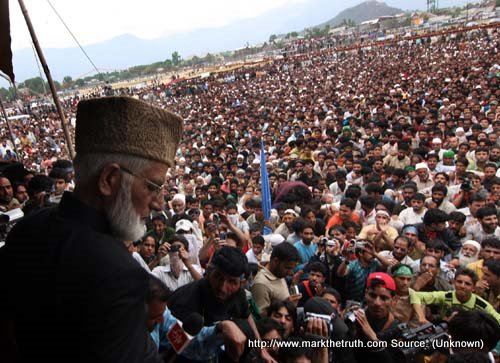dabong1
<b>PDF VETERAN</b>

- Joined
- Nov 28, 2006
- Messages
- 4,417
- Reaction score
- 1
No...... the indian army never killed and raped the Kashmiri Pandits.....they killed and raped the muslims kashmiris and made one and half million into refugees.
Can you give any reliable source and proof for this that Indian army killed muslim kashmiris?[/B]
Go to any international human rights site and get the figures!......no pont me putting them up as there going to be "propoganda".
And by the way if you talk about **** and murder of muslims then why not to discuss about baloch people? They are also muslims but pakistani army which is a muslim majority is killing their muslim brothers. You tell kashmiri that we are brothers because we are muslims then why in 1948 pakistani army supported and attacked on kashmir and killed thousands of muslims. Don't tell lie that you were not, if you want proof then see UN resolutions whose copy is posted in this forum.[/B]
Well why dont we start with you indians killing the sikhs in punjab,burning christians and oppressing the people of Arunachal Pradesh, Assam, Meghalaya, Manipur, Mizoram, Nagaland, and Tripura which are also hindus....why are you killing your brother hindus?
As for the UN.....you guys took it to the UN not us.
And the freedom fighters only kill those that support the indian armys occupation.
Can you tell me how a women who don't even read and write properly can support or help Indian army or spy for indian army? There are several cases in which your muslim terrorists killed and raped muslim woman's and nobody raise any issue on that. What about baloch protest? I can say that pakistani army is continuously killing and raping muslim woman then why don't you see yourself first and then point to others?[/B]
So your trying to compare a few cases in pakistan to hundreds of thousands of ****-murder in IOK?
You tried to chop a piece of kashmir off......but failed.
NOT we tried but you tried to swallow whole kashmir but failed to do so expressing your frustration here. This is well known that in 1948 pakistani army with the help of tribesman attacked on Kashmir and it united with India.[/B]
So the last few decades of killings that are no match for the 1947 war are more important......how come the kashmiris are not supporting you indians now and have been protesting and fighting for two decades.
At least you show yout true colours.......
Will time tell about our true color man, wait.[/B]
Yellow by any chance.
Let me guess......you spend nights and nights in kashmir and know more about it then the people that live there.
And tell me how many nights you've spend in kashmir? Ohh I forgot you spent more nights then me in the form of terrorist.
Well we learnt from your hindu brothers in sri lanka about suicide bombings.
So finally you accepted that you are a terrorist group because from a terrorist organization like LTTE you can learn only to kill.
The same prize the lady that blew up rajiv gandhi gets
If this is it then wait and see because if you don't wake up now, you'll get the price which LTTE got in recent years and it get vanished from whole Shri Lanka.
By the way I also believe that you deserve for this price.
Its just you indian need to know that suicide bombing is not exclusive to muslims but has been done by other faiths way before the muslims.
Last edited:















 )
)